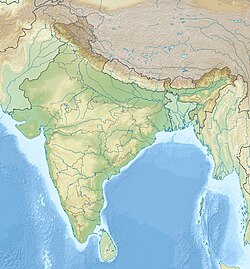Masol (paleontology)
From Wikipedia, the free encyclopedia
Masol is a paleontological-archaeological site in the Shivalik Frontal Range of the sub-Himalayan foothills of northwestern India, in the state of Punjab, a few kilometers north of Chandigarh. It dates from the end of the Pliocene. The fossiliferous formation called "Quranwala zone"(upper limit around 2.7 million years, lower limit 2.95 million years ago)[1] provides stone tools (choppers, flakes), some in situ with cut marks and percussion marks on fossil bones in the lower layers.[2][3][4] It represents the oldest paleontological record of hominin activities located outside of Africa.[5]
This article needs additional citations for verification. (March 2021) |
| Location | Masol, Punjab, India |
|---|---|
| Coordinates | 30°50′00″N 76°50′00″E |
| Site notes | |
| Excavation dates | 1960s-present |
The majority of the site is composed of sandstone, sand, and silt, which, through time, has eroded due to wind and water action.[6] Such geological action has contributed significantly to the natural excavation of the area.
References
Wikiwand - on
Seamless Wikipedia browsing. On steroids.
